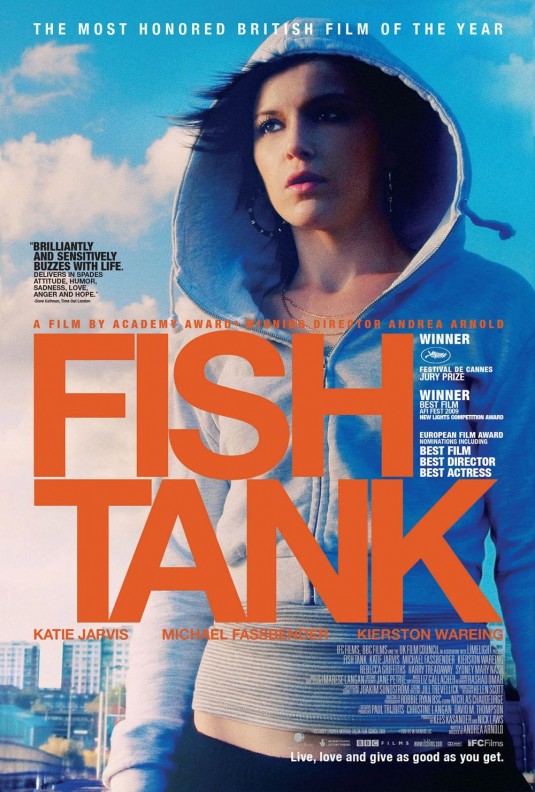
I put it on for the voyeurism and the infiltrating-another's-world angles, basically for act one's and act two's hooks, respectively, as they kind of feel like they make this film exist in the fuzzy space between the short script I'm putting together and the feature I've been working on lately. But of course Red Road isn't a film you watch casually, and once you sink into that world, well it's just like Jackie and her pain: the only way out is through.
The immersiveness of the world is one thing, but what really pulls you in is the character herself, with so much history and conflicted, confused feelings -- the primary mystery of the story is why she's doing what she's doing, and as she solves smaller mysteries (like why Clyde is doing what he's doing) we work to piece together her backstory. This works so well because the character's obtuse motivation isn't just some dramatic trick of withholding vital information for the sake of a twist; it's reflective of her own state. She doesn't know what her intentions are with Clyde, and seems to flirt with every possible emotional response within each scene. Keeping the backstory from us puts us more in her shoes. If you told us up front the nature of her interest in Clyde (and it's not like there aren't enough clues we can't get the gist of it pretty quick) we'd be busy moralizing and putting our own emotional desires ahead of hers. Since we're unsure just how she knows him or just what he's done to her, we wonder how far she's able, or willing, or even justified, to go -- just as she is wondering herself. Of course it also gives us a nice third-act reveal, as with any good mystery it all comes together at the end, and Jackie's catharsis feels genuine and earned, most likely because it isn't easy or cut-and-dry. She punishes him, cleverly and savagely, and then she forgives him, and then she reaches out to him. And tellingly, he does the same to her, in small ways, before they wander away from each other and back to their worlds -- he to his estranged daughter and petty crime and poverty, she to her authoritarian dayjob and ghosts and loving in-laws, impatiently waiting for her to finally begin the mourning process.
I wanted to say more about style and tone, as I'm kind of watching films with that in mind, and this one has a lot to chew on, but I pretty much filled up my quota and then some talking about the characters and drama -- and since that's where my heart really lies, I'll just let it be that Red Road is a film with both stylistic whizbang (haven't seen use of awkward video this good since 28 Days Later) and dramatic punch, but like it often does, the content trumped the style. Hard to complain about that.

